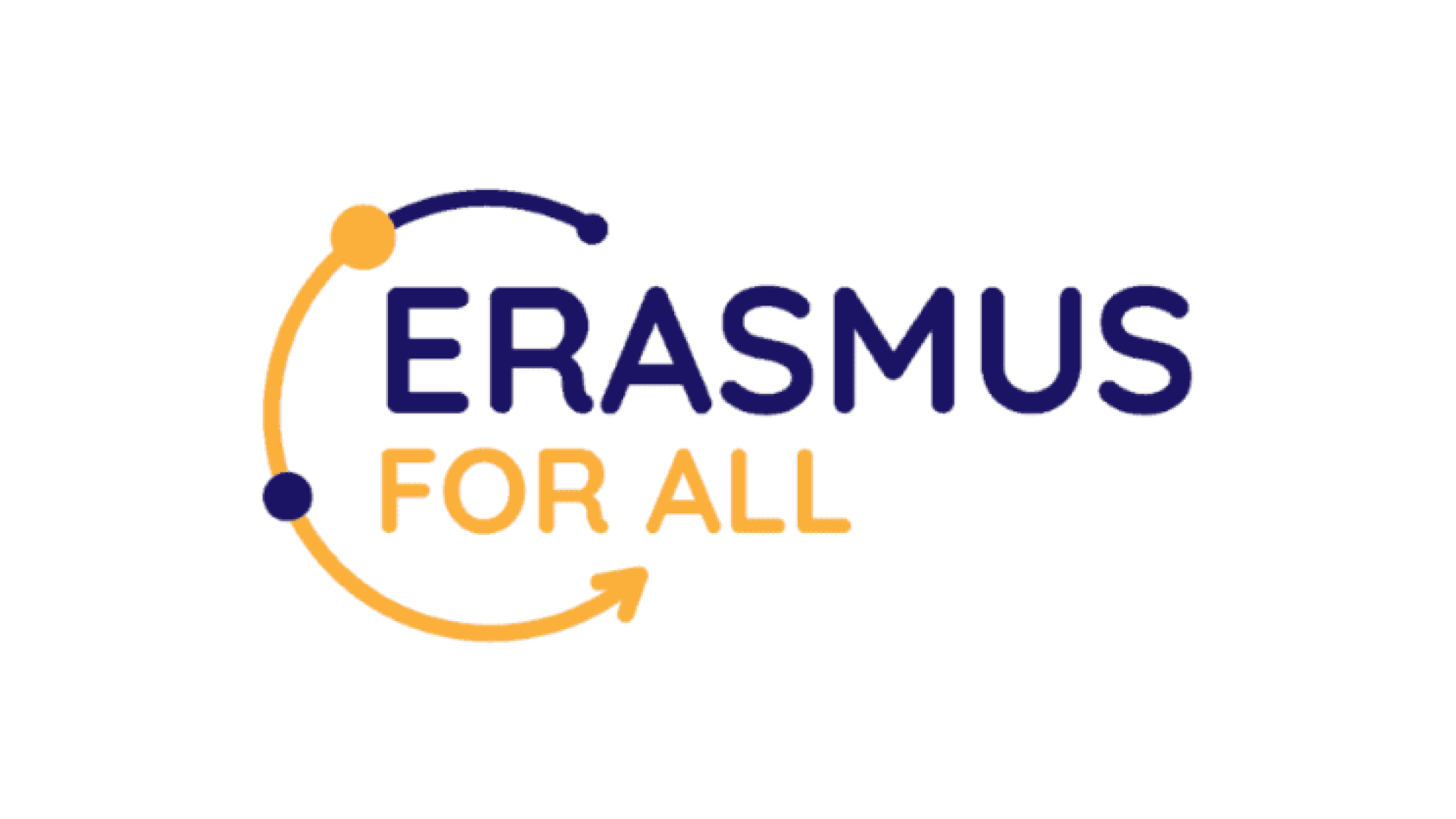Considering EU survey findings that most Higher Education students are excluded from the Erasmus programme due to financial reasons, the Erasmus for All Project aims to address the low participation rates by proposing a more applicable scholarship scheme. The project’s goals are to reduce economic disparities within the EU and promote fairness, inclusion, and equity in mobility grants.
Its objectives are to:
- Keep the topics of inclusion and equity in the policy agenda;
- Build a shared understanding among key stakeholders on the desired trajectory/evolution of the Erasmus+ grant system;
- Engage with policy and decision makers on resource allocation strategies that address the needs of the political goal of widening participation in mobility;
- Provide relevant and in-depth input for the mid-term review of the new Erasmus+ programme.
The implementation of Erasmus for All will encompass the organisation of a series of activities, events and publications. Firstly, the team will conduct a mapping of other scholarship funding models to benchmark for the more advantageous examples of grant schemes. This activity will be complemented by a desk research and multiplier event. Second round of activities will be led by working group in charge of designing a more inclusive grant scheme and publishing a document that gathers the methodologies used in developing this proposal. Thirdly, the organisation of a small-scale impact study will set a pilot-experiment with a sample of real Erasmus participants with similar financial conditions (economically disadvantaged). Lastly, partners will prepare a Policy Paper with recommendations based on the conclusions of all the previous activities. The partner institutions will address policy makers in a final conference „The future of Erasmus is for all!“.
Erasmus for all partnership consists of several partners (Sapienza- University of Rome, University Paris-Saclay, University of Pécs, Trinity College Dublin, European University Foundation, European Students’ Union) and two associate partners (SGroup – Universities in Europe, German Academic Exchange service), with University of Porto holding the coordinating role.
